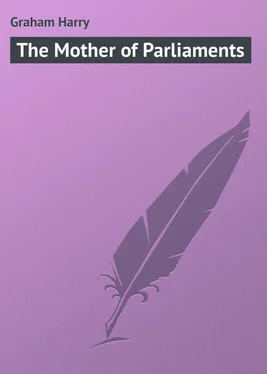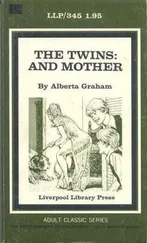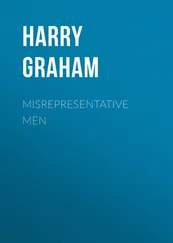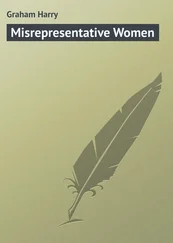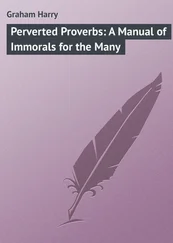Harry Graham - The Mother of Parliaments
Здесь есть возможность читать онлайн «Harry Graham - The Mother of Parliaments» — ознакомительный отрывок электронной книги совершенно бесплатно, а после прочтения отрывка купить полную версию. В некоторых случаях можно слушать аудио, скачать через торрент в формате fb2 и присутствует краткое содержание. Жанр: foreign_prose, на английском языке. Описание произведения, (предисловие) а так же отзывы посетителей доступны на портале библиотеки ЛибКат.
- Название:The Mother of Parliaments
- Автор:
- Жанр:
- Год:неизвестен
- ISBN:нет данных
- Рейтинг книги:5 / 5. Голосов: 1
-
Избранное:Добавить в избранное
- Отзывы:
-
Ваша оценка:
- 100
- 1
- 2
- 3
- 4
- 5
The Mother of Parliaments: краткое содержание, описание и аннотация
Предлагаем к чтению аннотацию, описание, краткое содержание или предисловие (зависит от того, что написал сам автор книги «The Mother of Parliaments»). Если вы не нашли необходимую информацию о книге — напишите в комментариях, мы постараемся отыскать её.
The Mother of Parliaments — читать онлайн ознакомительный отрывок
Ниже представлен текст книги, разбитый по страницам. Система сохранения места последней прочитанной страницы, позволяет с удобством читать онлайн бесплатно книгу «The Mother of Parliaments», без необходимости каждый раз заново искать на чём Вы остановились. Поставьте закладку, и сможете в любой момент перейти на страницу, на которой закончили чтение.
Интервал:
Закладка:
The policy of Reform, on the other hand, is unacceptable to those who desire the predominance of the First Chamber, as any successful scheme for removing present defects in the constitution of the Lords — e. g. the excessive size of the House, the preponderance therein of one party, and the presence of undesirable members – must result in its increased strength and importance. Consequently the Commons have neither made nor encouraged any attempts in that direction.
Such suggestions as have taken any shape have been proposed by the Lords themselves, and the history of the last thirty years exhibits many internal efforts to reform on the part of those dissatisfied with the ancient constitution of the House. In 1884, Lord Rosebery's motion for a Select Committee to consider the best means of promoting the efficiency of the House of Lords, was negatived. Four years later he moved for another Select Committee to inquire into the Constitution of the House. In the same year an elaborate Bill of Lord Dunraven's for reforming the Lords was rejected, and another, promoted by Lord Salisbury, was withdrawn after having passed the second reading. In 1908 a committee met, under the chairmanship of Lord Rosebery, to look into the whole question, and issued a most interesting and practical report, full of admirable recommendations. This committee began by pointing out the expediency of reducing the numbers of an assembly which, within recent years has increased to such an extent as to render itself too unwieldy for legislative purposes. It strongly urged that the recommendations to the Crown for the creation of hereditary peerages should be restricted within somewhat narrower limits. Many peers, as the report explained, are obviously ill-suited to their Parliamentary duties; others find the work irksome and distasteful; of a few it may euphemistically be observed that their release from the burden of legislative responsibilities would be eminently desirable. Lord Rosebery's committee therefore came to the conclusion that the dignity of a peer and the dignity of a Lord of Parliament should be separate and distinct, and that, except in the case of peers of the Blood Royal, the possession of a peerage should not necessarily be attended with the right to sit and vote in the House of Lords. A further suggestion was made that the hereditary peers should be represented by two hundred of their number, elected by them to sit as Lords of Parliament, not for life, but for each parliament, and that the number of Spiritual Peers should be proportionately reduced to ten. The inclusion of representatives from the Colonies, and the granting of a writ of summons to a number of qualified persons who had held high office in the State, figured prominently in this scheme of reform.
Following up these recommendations, the House on the motion of Lord Rosebery has recently adopted the following resolutions for its own reconstitution: —
"(1) That a strong and efficient Second Chamber is not merely an integral part of the British Constitution, but is necessary to the well-being of the State and to the balance of Parliament.
"(2) That such a Chamber can best be obtained by the reform and reconstitution of the House of Lords.
"(3) That a necessary preliminary of such reform and reconstitution is the acceptance of the principle that the possession of a peerage should no longer of itself give the right to sit and vote in the House of Lords." 52 52 The following further Resolutions stand upon the Notice Paper and still await consideration: — "(1) That in future the House of Lords shall consist of Lords of Parliament: A. Chosen by the whole body of hereditary peers from among themselves and by nomination by the Crown. B. Sitting by virtue of offices and of qualifications held by them. C. Chosen from outside. "(2) That the term of tenure for all Lords of Parliament shall be the same, except in the case of those who sit ex-officio, who would sit so long as they held the office for which they sit."
We are sometimes tempted nowadays to laugh, like "the gardener Adam and his wife," at the claims of long descent. But the pride of birth and blood is common to all nations, perhaps less so in England than elsewhere. The French ducal family of Levis boasted a descent from the princes of Judah, and would produce an old painting in which one of their ancestors was represented as bowing, hat in hand, to the Virgin, who was saying, "Couvrez-vous, mon cousin!" Similarly the family of Cory possessed a picture of Noah with one foot in the ark, exclaiming, "Sauvez les papiers de la maison de Cory!" 53 53 Hayward's "Essays," p. 305.
Byron is said to have been prouder of his pedigree than of his poems, and it is to be hoped that our aristocracy will never entirely forget that their ancestors have handed down to them traditions which are more precious than the titles and lands by which they are represented.
One cannot altogether relish the sight of several peers, who had been considered incompetent to manage their own affairs, hastening to Westminster at the call of a party "Whip" to record their votes upon Imperial concerns of the greatest importance. And though it must be admitted that it is rare indeed for the incompetent or degenerate members of the Upper House to take any part in its deliberations, the fact that they have the undoubted right to do so scarcely tends to enhance the respect in which that assembly is popularly held. In spite, however, of the occasional presence of "undesirables," it is generally acknowledged that if any question arises requiring a display of more than ordinary knowledge of history, or more practical wisdom or learning, these can nowhere be found so well as in the Upper House. There, too, the level of oratory and of common sense is perceptibly higher than in the popular assembly. But the Reform Bill of 1832 enabled the Commons to speak in the name of the people, which they had never hitherto done, and which the Lords cannot do, and thus created that wide gulf which now separates them from the House of Lords. Here, however, as well as there, are many men who realise that, in the words of Lord Rosebery, they have a great heritage, "their own honour, and the honour of their ancestors, and of their posterity, to guard." 54 54 Hansard, vol. 289, p. 957 (1884).
CHAPTER III
THE HOUSE OF COMMONS
The Witenagemot, as we have already seen, was essentially an aristocratic assembly. The populace sometimes attended its meetings, but, beyond expressing their feelings by shouts of approval, took no part in its deliberations. For many years after the Conquest the People continued to be unrepresented in the Great Council of the nation, though they were still present as spectators. From 1066 until about 1225, says Blackstone, the Lords were the only legislators. After the latter date the Commons were occasionally summoned, and in 1265 they formed a regular part of the legislature. Then for the first time did the counties of England return two knights, and the boroughs and cities two deputies each, to represent them in Parliament. Seventy-four knights from all the English counties except Chester, Durham, and Monmouth, 55 55 Durham, both County and City, was not enfranchised until 1673, and Monmouth was regarded as a Welsh County.
and about two hundred burgesses and citizens, sat in the Parliament of Edward I.; but it was not until the reign of his successor that any attempt was made to form a constitutional government.
The Three Estates in those days sat in the same Chamber, but did not join in debate. The Lords made the laws, and the Commons looked on or perhaps assented respectfully. The separation of the two Houses took place in the reign of Edward III., when the knights threw in their allegiance with the burgesses, and in 1322 the Lower House 56 56 "The House of Commons is called the Lower House in twenty Acts of Parliament," says Selden. "But what are twenty Acts of Parliament amongst friends?" – "Table Talk," p. 36.
first met apart.
Интервал:
Закладка:
Похожие книги на «The Mother of Parliaments»
Представляем Вашему вниманию похожие книги на «The Mother of Parliaments» списком для выбора. Мы отобрали схожую по названию и смыслу литературу в надежде предоставить читателям больше вариантов отыскать новые, интересные, ещё непрочитанные произведения.
Обсуждение, отзывы о книге «The Mother of Parliaments» и просто собственные мнения читателей. Оставьте ваши комментарии, напишите, что Вы думаете о произведении, его смысле или главных героях. Укажите что конкретно понравилось, а что нет, и почему Вы так считаете.
